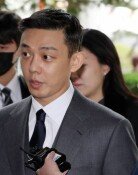Outgoing parliament should pass key economic bills
Outgoing parliament should pass key economic bills
Posted April. 22, 2016 07:41,
Updated April. 22, 2016 07:45
The outgoing National Assembly opened for its last extraordinary session on Thursday for a month-long schedule. However, no committee meeting was held to deliberate pending bills, while only the Legislation and Judiciary Committee is scheduled for a meeting this month. Lawmakers made such lame excuses as having too many members who lost in last week’s parliamentary elections or being unfamiliar to holding a post-election session or having no schedule concluded for a main session.
The Korean economy is facing a crisis in which the growth rate in plummeting and jobs are decreasing. According to the result of a survey by the Federation of Korean Industries, the country’s top 30 business conglomerates plan to newly hire 126,394 people this year, a decrease of 4.2 percent year-on-year, while 16 of them plan to reduce recruitment. The business community says that at a time when companies’ manpower cost has been increased by a worsening economic situation and an extended retirement age, the National Assembly should quickly pass major pending economic bills, including those on labor reform, to create more jobs. The outgoing parliament, which has the bad name of the “worst National Assembly ever, should at least pass those bills during its last extraordinary session in order to cleanse itself of some of the disgrace.
Lee Jong-kul, the floor leader of the main opposition Minjoo Party of Korea, argues that the administration’s economic reinvigoration bills have proved a failure and that the services industry bill should also be reconsidered from scratch. Although voters were so fed up with the ruling party’s arrogance as to give majority seats to opposition parties, they are also tired of the opposition parties’ uncooperative attitude. The political circles should take seriously warnings by credit rating agencies Fitch Ratings and Moody's that failure to pass the structural reform bills will likely negatively impact Korea’s sovereign ratings and economic growth potential.
It is noteworthy that some opposition lawmakers are showing market-friendly and business-friendly attitudes after the parliamentary elections. Economics Professor Choi Woon-youl at Sogang University who was elected on a proportional representation slate of the Minjoo Party, said at a meeting of elected lawmakers that they should all be business-friendly to revive the economy and that economic growth is the best welfare and redistribution of wealth. He also called for including a medical industry reform bill, which the party had been opposed to. It is a desirable change for the two major opposition parties to indicate their willingness to cooperate in corporate restructuring.
If the two opposition parties holding majority seats in the incoming National Assembly take a realistic position on economic policies, they can help improve investor sentiment at home and abroad and re-start the growth engine. Their attitude toward the pending economic bills will become a litmus test for how serious they are for a change.
권순활논설위원 shkwon@donga.com
Headline News
- Med professors announce intention to leave hospitals starting Thursday
- Bridge honoring Sgt. Moon Jae-sik unveiled in Pennsylvania
- Chief of Staff Chung tells presidential secretaries to stay away from politics
- US FTC bans noncompete agreements
- N. Korea launches cyberattacks on S. Korea's defense companies







